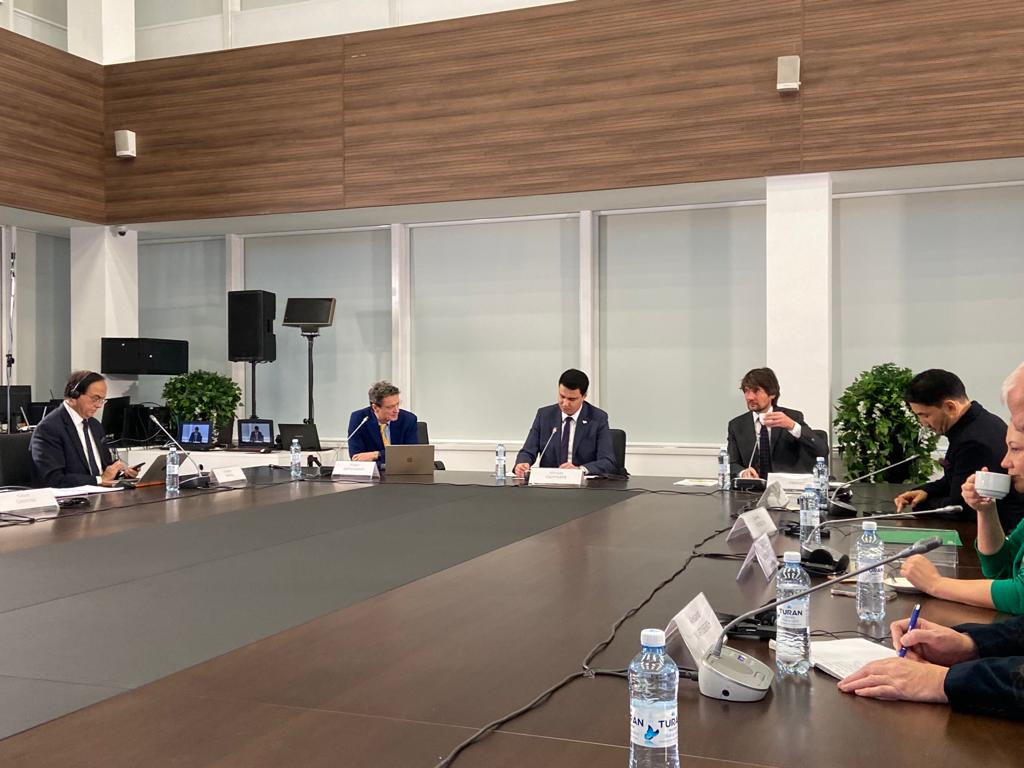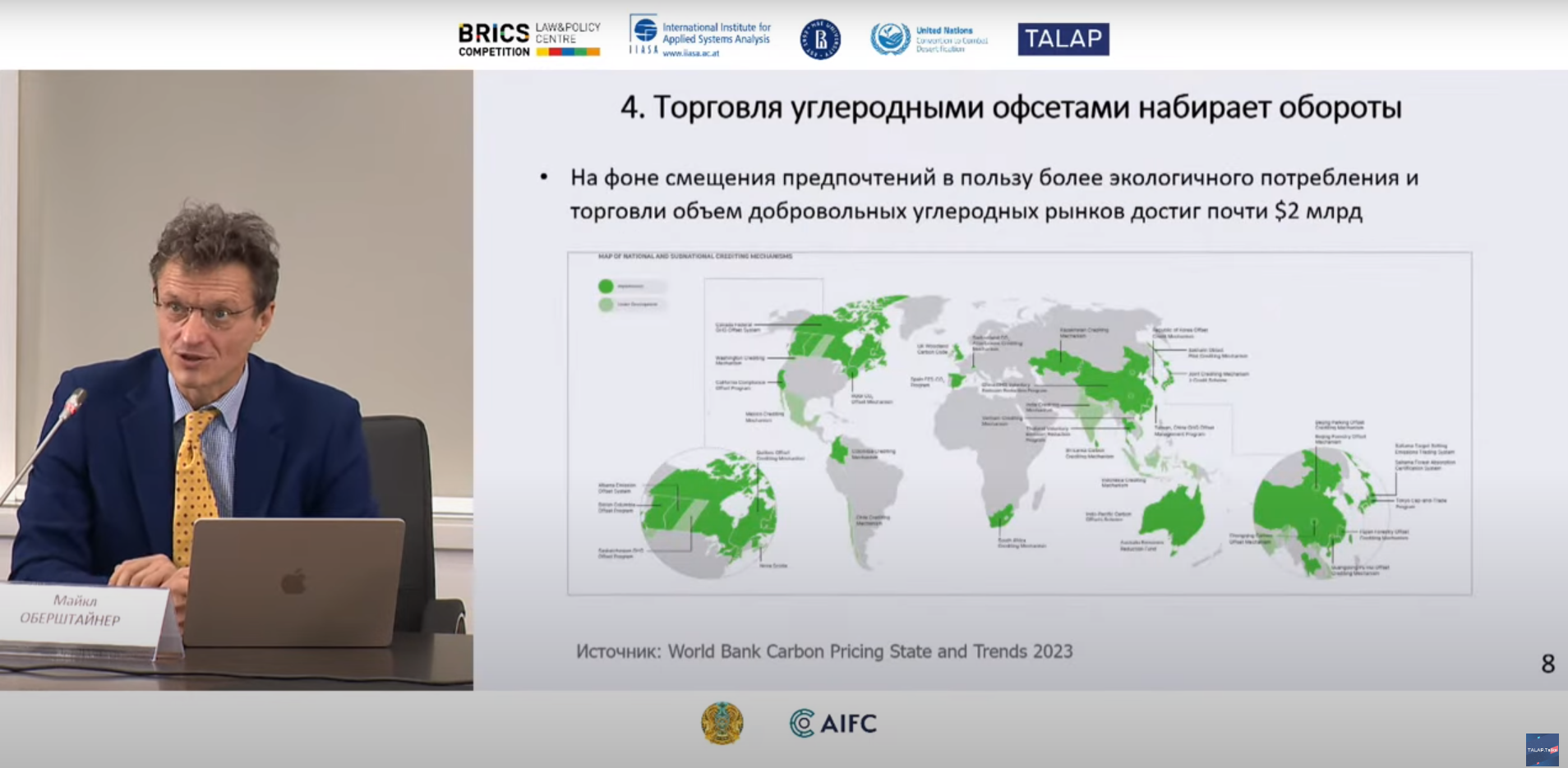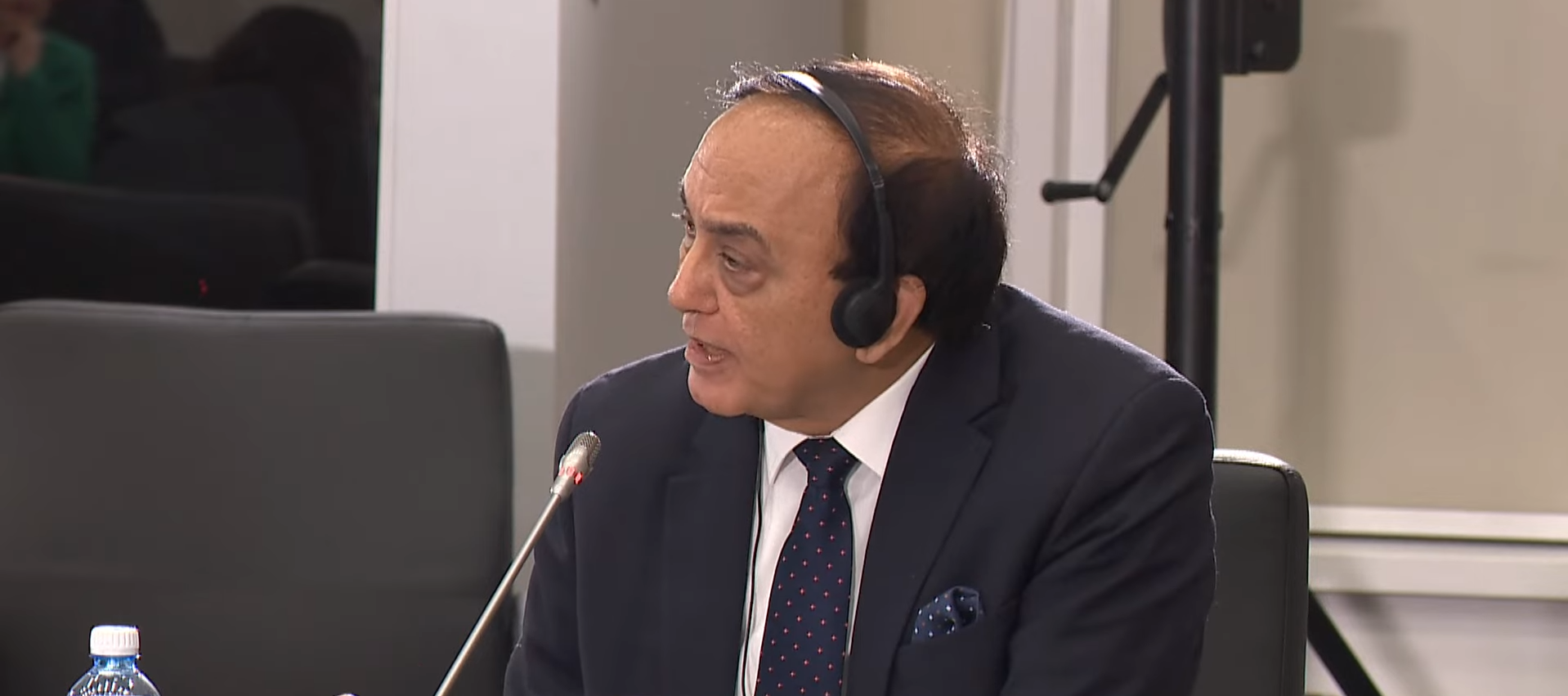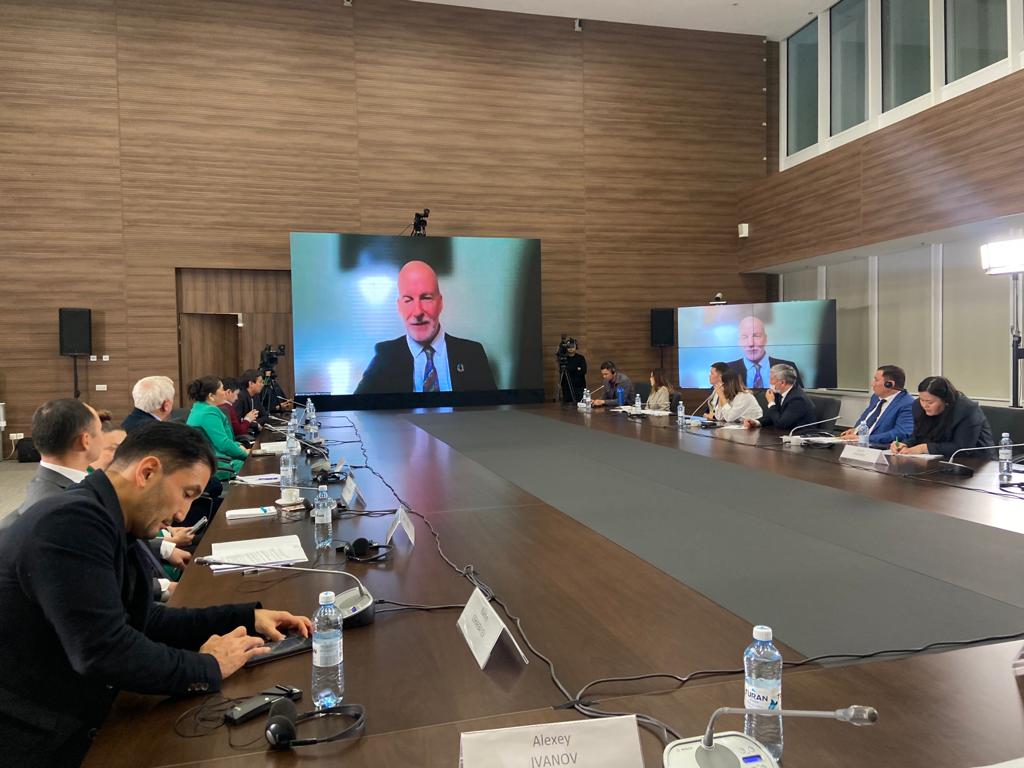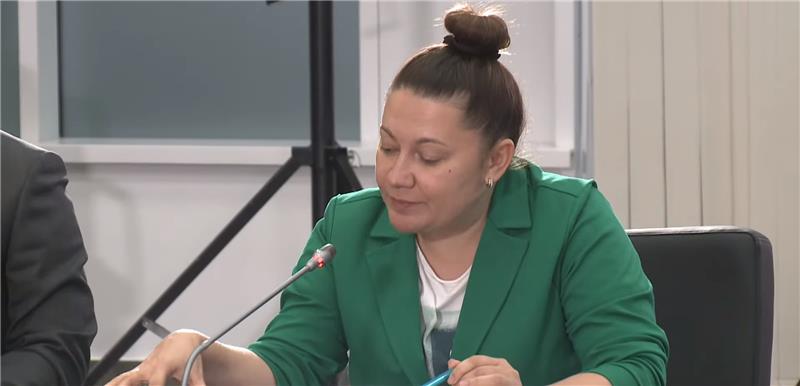
As opportunities for foreign investments and international linkages for Central Asia grows, it provides a great window of opportunity for Kazakhstan to scope new means to revive its unused lands. In November, the Advancing Systems Analysis (ASA) program showcased its preliminary findings on scaling carbon farming prospects in Kazakhstan in the capital city of Astana.
Kazakhstan is a country with enormous land use potential with over 270 million hectaresof land spanning across mountains to seas and deserts to forest steppe. However, the potential of vast regions of land has been hindered by severe degradation caused by both natural and anthropogenic factors. Almost 57 million hectares of land is considered degraded which impacts the lives of 4.3 million people, that is, one-third of the country’s population (UNCCD, 2023). Furthermore, with 30% of the population tied to the agricultural sector alone and 45% of the population residing in rural areas, Kazakhstan’s economy as well as the welfare of its citizens is greatly intertwined with land-use (US International Trade Administration, 2022).
Carbon farming is one of the key methods for agricultural sectors to achieve mitigation whilst also improving land quality. Practices such as low or no-tillage, planting cover crops, and planting grasses with high carbon absorptions all contribute toward increasing the soil organic carbon stock (SOC), a critical determinant of higher soil quality. Implementation of such carbon farming practices could restore degraded lands and, in the process, restore ecosystems and improve welfare of local communities relying on land use for income. Trading carbon removal credits generated from carbon farming worldwide could also provide incomes for farmers and reinvestments for local communities facing severe threats from drought and climate change across the country.
IIASA alongside the BRICS Competition Law and Policy Center and the TALAP Center for Applied Research conducted roundtable discussions in the Astana International Financial Center (AIFC). The event was hosted by the Ministry of Ecology and Natural Resources of the Republic of Kazakhstan and was endorsed by the presence of high-level ministerial policymakers. The event began with opening remarks from Mansur Oshurbaev, Vice Minister for Ecology and Natural Resources, who highlighted the opportunities for Kazakhstan in implementing carbon farming and emphasized on the need for an effective governance of the carbon farming and trading system to ensure optimal allocation of carbon removal credits and promotion of welfare and income growth for Kazakhstan's farmers.
Michael Obersteiner, Director of the Environmental Change Institute at the University of Oxford, and Principal Research Scholar in ASA presented the key findings of ASA’s upcoming report Carbon Farming in Kazakhstan: Unlocking an Opportunity which discusses the prospects and challenges of implementing carbon farming in Kazakhstan. The report, set to launch in December 2023, will provide a comprehensive tailoring of current scientific understanding of carbon farming and trading to the context of Kazakhstan and Central Asia. The upcoming report will conclude phase I of project CAMEA which focuses on exploring the feasibilities of nature-based solutions for carbon removal in Central Asia and Eurasia.
The Contribution of Working Group III to the 4th Assessment Report the IPCC highlights the importance of soil sequestration methods and agricultural mitigation to combat climate change and emphasizes its potential synergies with sustainable development policies including social and environmental co-benefits. In line with this, Elena Rovenskaya, Program Director at ASA and Pradeep Monga, Senior Adviser in ASA, and former Deputy Executive Secretary at United Nations Convention to Combat Desertification (UNCCD), also presented on the importance of developing nature-positive mechanisms of climate adaptation to improve prosperity to local communities with a focus on women and youth welfare. The event hosted virtual contributions from Barron Orr, Chief Scientist at UNCCD, on the environmental restorative co-benefits of carbon farming in Kazakhstan.
The discussions were supported with key contributions from Saule Sabiyeva, Acting Director of the Climate Policy Department of the Ministry of Ecology and Natural Resources, who agreed on the importance for an effective system to allocate carbon offsets to Kazakhstan's own obligations and for trading in international voluntary markets as well as cooperation with other relevant ministries to ensure holistic governance of a carbon farming program on a national scale. Daniyar Kelbetov, Chief Product Officer, and Member of the Management Board of AIFC noted the need for representation of carbon removal credits as a distinct asset class, both in Kazakhstan and abroad, to ensure transparency and integrity in carbon trades for investors and companies.
Overall, the discussion highlighted the potential commodification of carbon sequestration systems and Eurasia's pivotal role in hosting trading platforms. The emphasis on the long-term scope of carbon sequestration motivates phase II for CAMEA to persist in its research, aligning with its ambitions for increased international integration and policy impact .We sincerely thank the Ministry of Ecology and Natural Resources of the Republic of Kazakhstan for hosting such fruitful dialogue.
To see our presentation for the discussions in Astana, click here.
To watch the Inaugural Conference from October 2022, click here.
Read in detail about our discussions from October 2022, click here.
Michael Obersteiner discussing the opportunities for trading carbon removal credits with a map of existing crediting mechanisms in his keynote presentation. Image on slide source: World Bank. 2023. State and Trends of Carbon Pricing 2023. Washington, DC: World Bank. doi: 10.1596/978-1-4648-2006-9. License: Creative Commons Attribution CC BY 3.0 IGO.
News

12 December 2024
Carbon Farming in the Dryland Belt of Northern Eurasia: Unlocking Win-Win Opportunities at COP16

02 December 2024
Carbon Farming for Kazakhstan and the Asian Drylands Belt discussed at COP29

14 December 2023





